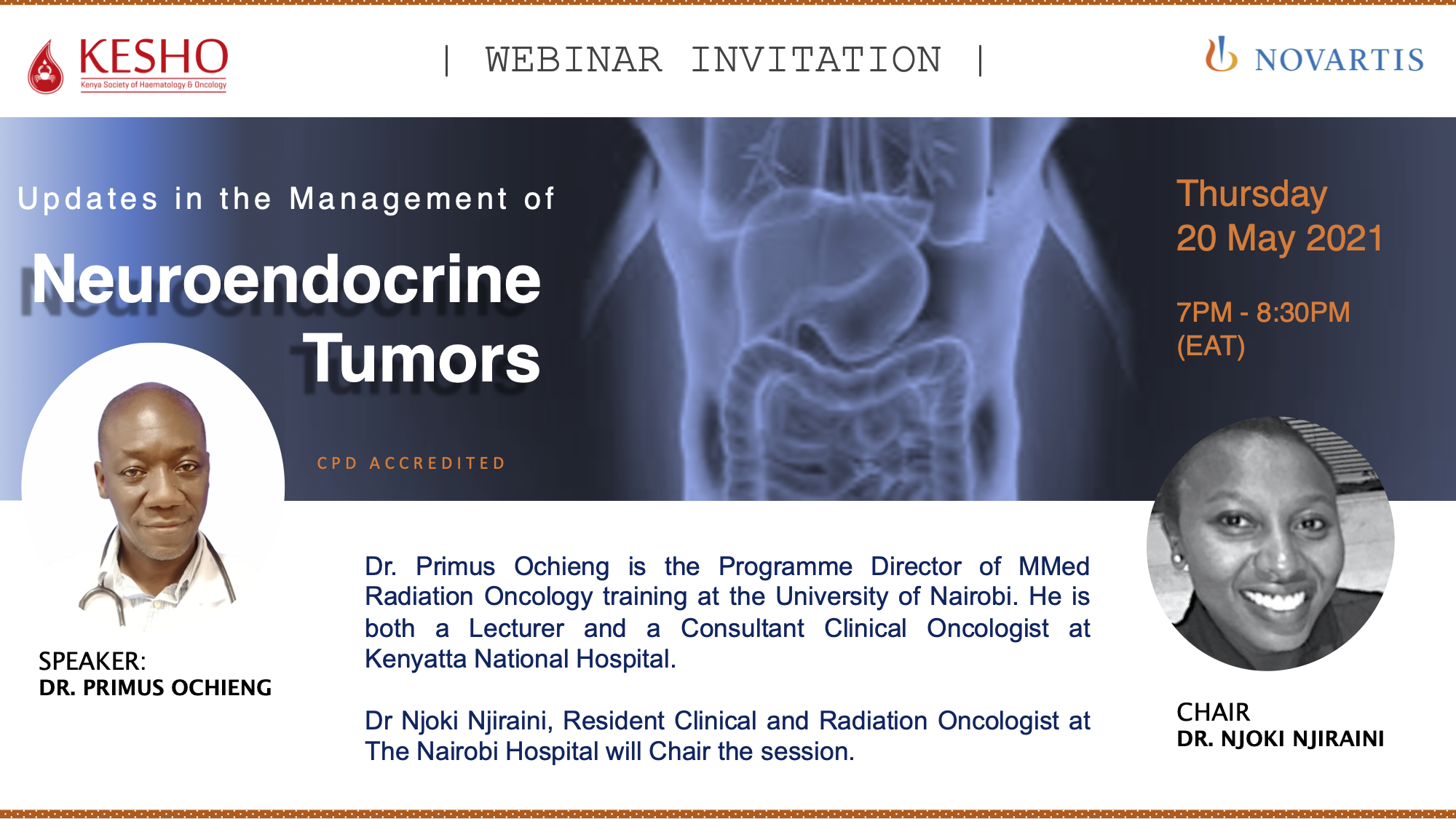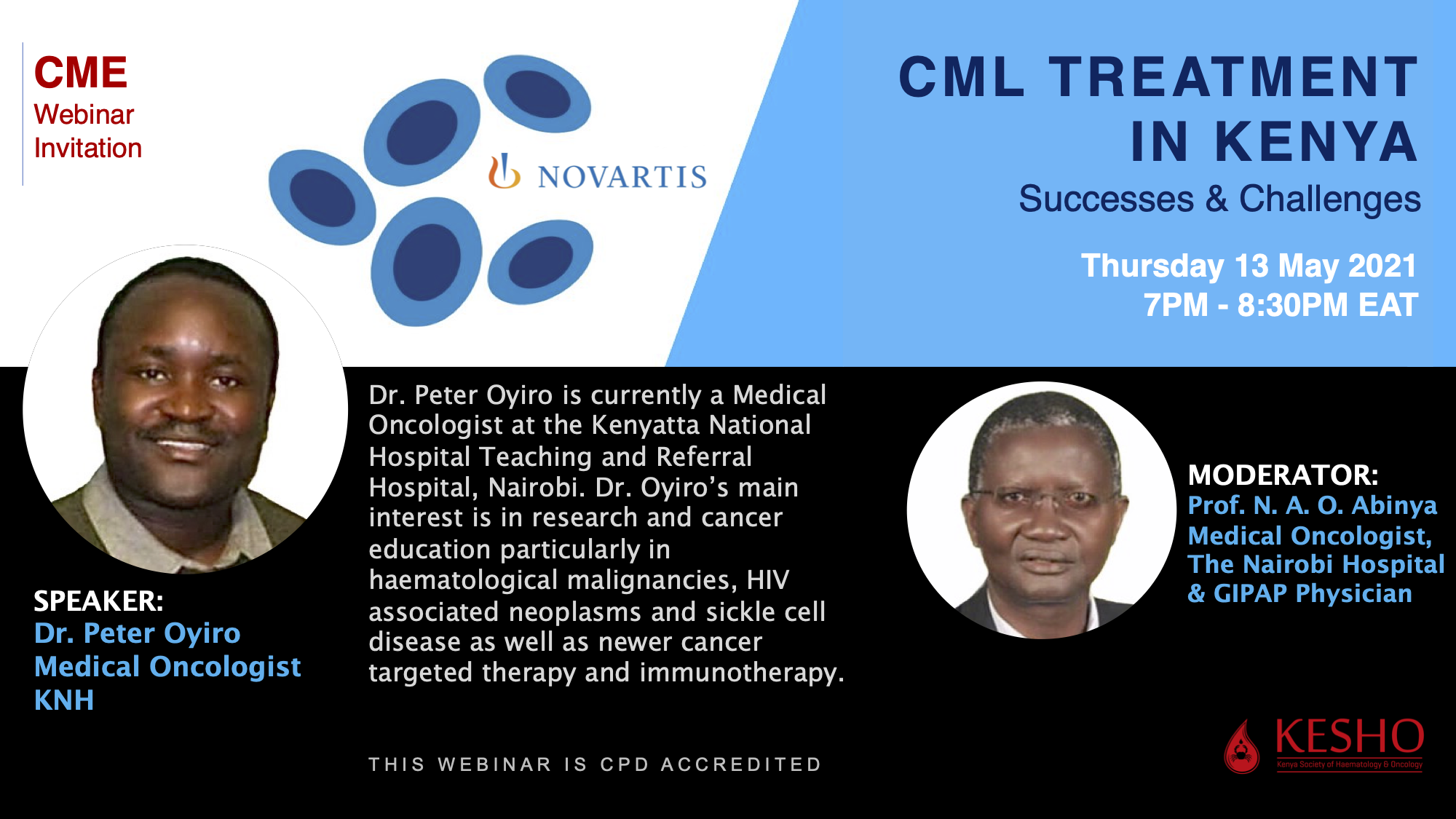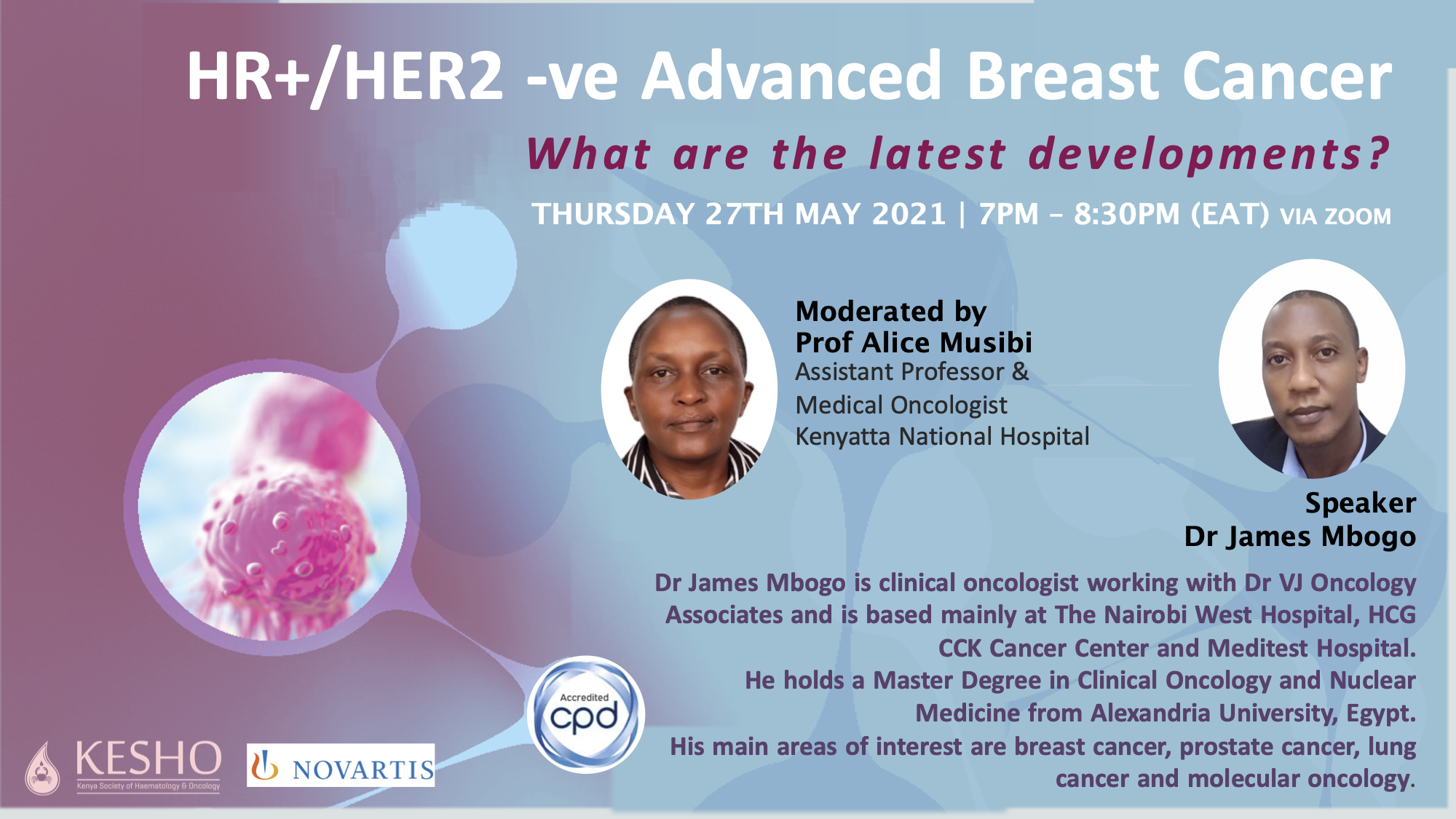
- This event has passed.
Updates in the Management of Neuroendocrine Tumors
Event Navigation

Moderator: Dr. Njoki Njiraini, Resident Clinical and Radiation Oncologist at The Nairobi Hospital. Sponsor: Novartis Presenters:
- Dr. Primus Ochieng, Programme Director of MMed Radiation Oncology training at the University of Nairobi. He is both a Lecturer and a Consultant Clinical Oncologist at Kenyatta National Hospital
Neuroendocrine tumors (NET) are a common malignant transformation of cells in the diffuse neuroendocrine system that regulates motility and secretion. The tumors are heterogeneous with a wide variety of clinical presentations and are difficult to diagnose. Neuroendocrine carcinomas are poorly differentiated with increased expression of Ki67. Most patients present with advanced disease and have a median survival of 33 months. NETs are distributed all over the body. Over 95% of NET is sporadic, with only a small percentage being genetic-related. Currently, there are no preventive strategies and no screening guidelines. Initially, the classification of NET was based on the tissue of origin. To date, WHO classification is based on grading and staging. Classification can also be based on functioning versus Non-functioning NET. Presentation is by tumor growth with pain, obstruction hepatomegaly, and early satiety. Diagnosis is by a systematic approach including history and physical examination, biochemical markers, and imaging, although conventional imaging has a limited role in diagnosis. Chromogranin A (CgA) is a valuable diagnostic and prognostic tool that can be used to monitor treatment response. It is more sensitive than radiology for measuring progression. The major challenge with this testing method is that other conditions can cause elevated CgA and also the CgA values vary considerably between different types of NETs. The test kits are also not universally standardized. Therapies for NETs apply three principles: surgical therapy, (best treatment option), symptomatic therapy, and anti-proliferative therapy. The current focus is shifting from symptom management to targeting tumors. Chemotherapy including temozolomide and capecitabine has been shown to improve overall survival benefits, better response, and progression-free survival. Considering immunotherapies, Pemblolizumab has benefits in NET tumors. Radiotherapies have palliative use. Although NETs are well managed with targeted therapy, the technology is not currently available in Kenya. Considering limited available data, there is a need to work in groups and generate local data on NETs.
Webinar Recording

